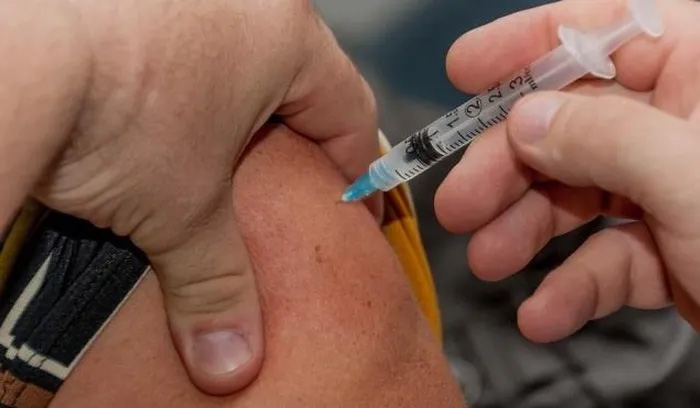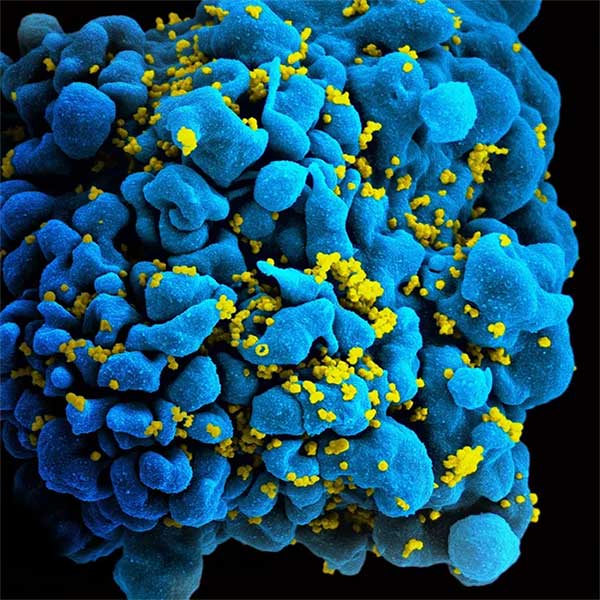Researchers in Israel have discovered a method to modify B cells, releasing antibodies against HIV, which could potentially cure the disease with just one injection.
The new study was conducted by a team of experts from Tel Aviv University, Israel, and published in the journal Nature Biotechnology.
The authors propose a new AIDS treatment method that could evolve into a vaccine or a one-time treatment for HIV patients. They found that modifying B cells in the patients’ bodies helps release a large number of antibodies against HIV.
A New Hope for an Incurable Disease
For decades, many AIDS patients (or those in the late stages of HIV) have seen improvements thanks to medications that have allowed them to transition from a fatal condition to a chronic illness. However, the scientific community continues to search for a cure that can permanently heal patients.
Dr. Barzel’s laboratory at the Sourasky Medical Center (Ichilov), Tel Aviv University, has pioneered a method to cure HIV/AIDS with just one injection. His team utilizes genetically modified B cells to release neutralizing antibodies against the HIV virus, the causative agent of the disease.
B cells are white blood cells that produce antibodies against viruses, bacteria, and other pathogens. Bone marrow is where B cells are formed. Once matured, B cells migrate into the bloodstream, lymphatic system, and other parts of the body.

Israeli scientists state that with their method, just one injection may cure HIV/AIDS patients. (Image: Jewish Business News).
So far, only a few scientists have been able to create B cells outside of the body. In the study published in Nature Biotechnology, the Tel Aviv University team is the first to generate desired antibodies outside the body.
They utilized genetic engineering, using viral vectors designed to be harmless to patients while carrying genes that encode for antibodies into B cells. They can also accurately insert antibodies into the desired locations within the B cell genome.
In their research, all model animals treated with this method showed a significant response and a high level of antibodies in their blood. The authors assert that they successfully produced antibodies from blood and ensured they effectively neutralized the HIV virus in laboratory tests.
The Technology Behind It
The gene editing of B cells was performed by the authors using CRISPR technology. This technology is based on the immune system of bacteria that defend against viruses. Bacteria use the CRISPR system as a type of molecular “search tool” to identify viral sequences, degrade, and neutralize them.
Two biochemists, Emmanuelle Charpentier and Jennifer Doudna, discovered this intricate protective mechanism, which can redirect the cleavage of any chosen DNA. Since then, this technology has been employed to disable unwanted genes or to repair and insert desired genes. Researchers Doudna and Charpentier have gained international recognition and were awarded the Nobel Prize in Chemistry in 2020.
In their research, the Israeli team combined the capabilities of CRISPR to insert genes into desired locations. This allowed them to redesign B cells within the patients’ bodies.

The authors hope this method will not only cure HIV but also many other dangerous diseases such as viral cancers and infectious diseases. (Image: NIAID).
The authors used two AAV viral vectors, one carrying the gene for the desired antibody and the second carrying the CRISPR system. When CRISPR cuts into the desired position in the B cell genome, it directs the insertion of the desired gene, which encodes the antibody against the HIV virus – the cause of AIDS.
Dr. Barzel concluded: “We have developed an innovative treatment method that can defeat the virus with a single injection, significantly improving the condition of patients. When the engineered B cells encounter the virus, the virus will stimulate and encourage them to divide. Thus, we are using the very cause of the disease to combat it. Furthermore, if the virus changes, the B cells will also adapt to fight against it. We have created the first drug that can evolve within the body and defeat the virus in this ‘arms race’.”
Based on this research, the authors hope that in the coming years, they can successfully produce a drug to treat AIDS and other infectious diseases or certain types of viral-induced cancers such as cervical cancer and head and neck cancers…


















































